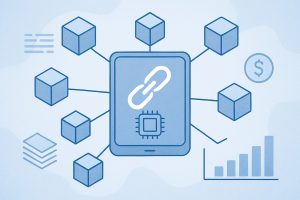
The internet was built on centralized structures. Companies control user data, governments impose regulations, and breaches expose millions to identity theft. Blockchain technology is shifting this balance. By distributing control across a network, it removes the need for a single authority, reducing risks and strengthening personal privacy.
The Problem with Centralization
Centralized platforms store vast amounts of user data. This model presents several challenges:
- Single Points of Failure – A breach at a major data center can compromise millions of users.
- Third-Party Trust Issues – Companies monetize user data, often without consent.
- Censorship and Control – Governments and corporations dictate access and availability.
- Surveillance Risks – Centralized entities collect user activity, reducing anonymity.
Blockchain offers a different approach. Rather than relying on a single entity, it distributes control, reducing vulnerabilities.
How Blockchain Strengthens Privacy
Blockchain transactions rely on cryptographic techniques to secure data. This method prevents unauthorized access while allowing verification of transactions without revealing personal details.
Key Benefits of Decentralization in Privacy Protection
- Data Ownership – Users maintain control over their personal information without third-party oversight.
- Pseudonymity – Transactions occur under cryptographic addresses rather than identifiable personal details.
- Permissionless Access – No single entity controls blockchain participation, ensuring open access.
- Smart Contracts for Privacy – Automated agreements execute without intermediaries, limiting exposure to personal data.
SmartChain smart contracts use cases demonstrate how decentralized finance (DeFi), identity verification, and secure messaging platforms can function without centralized control.
Reducing the Risks of Digital Surveillance
Centralized systems track user activity, often creating extensive digital footprints. By checking “My IP Location,” individuals can see how much information is exposed. Using a VPN adds another layer of protection, preventing tracking while interacting with blockchain networks.
Decentralized applications (dApps) provide further safeguards:
- Decentralized Identity Solutions – Users verify credentials without storing personal data on centralized servers.
- Private Transactions – Zero-knowledge proofs allow verification without disclosing underlying details.
- Distributed Storage – Networks like IPFS replace traditional cloud storage, minimizing data leaks.
Challenges and Future Considerations
While decentralization improves privacy, it introduces complexities:
- Scalability – Processing transactions across a distributed network can be slower than centralized alternatives.
- User Responsibility – Self-custody of cryptographic keys means no recovery options if lost.
- Regulatory Uncertainty – Governments seek ways to balance privacy with compliance.
A Shift Toward User-Controlled Security
Blockchain-powered privacy solutions put control back in the hands of users. As adoption grows, individuals and businesses must weigh security against convenience. The move away from centralized authorities presents challenges, but the long-term benefits of autonomy and security make decentralization a powerful force in reshaping online privacy.




